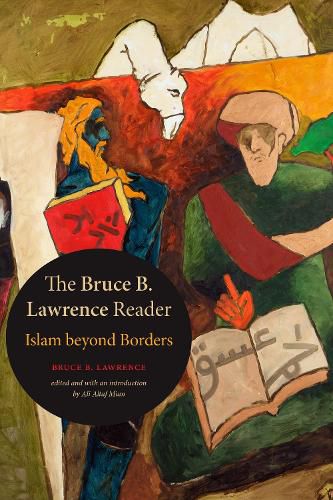Readings Newsletter
Become a Readings Member to make your shopping experience even easier.
Sign in or sign up for free!
You’re not far away from qualifying for FREE standard shipping within Australia
You’ve qualified for FREE standard shipping within Australia
The cart is loading…






Over the course of his career, Bruce B. Lawrence has explored the central elements of Islamicate civilization and Muslim networks. This reader assembles more than two dozen of Lawrence’s key writings, among them analyses of premodern and modern Islamic discourses, practices, and institutions and methodological reflections on the contextual study of religion. Six methodologies serve as the organizing rubric: theorizing Islam, revaluing Muslim comparativists, translating Sufism, deconstructing religious modernity, networking Muslims, and reflecting on the Divine. Throughout, Lawrence attributes the resilience of Islam to its cosmopolitan character and Muslims’ engagement in cross-cultural dialogue. Several essays also address the central role of institutional Sufism in various phases and domains of Islamic history. The volume concludes with Lawrence’s reflections on Islam’s spiritual and aesthetic resources in the context of global comity. Modeling what it means to study Islam beyond political and disciplinary borders as well as a commitment to linking empathetic imagination with critical reflection, this reader presents the broad arc of Lawrence’s prescient contributions to the study of Islam.
$9.00 standard shipping within Australia
FREE standard shipping within Australia for orders over $100.00
Express & International shipping calculated at checkout
Over the course of his career, Bruce B. Lawrence has explored the central elements of Islamicate civilization and Muslim networks. This reader assembles more than two dozen of Lawrence’s key writings, among them analyses of premodern and modern Islamic discourses, practices, and institutions and methodological reflections on the contextual study of religion. Six methodologies serve as the organizing rubric: theorizing Islam, revaluing Muslim comparativists, translating Sufism, deconstructing religious modernity, networking Muslims, and reflecting on the Divine. Throughout, Lawrence attributes the resilience of Islam to its cosmopolitan character and Muslims’ engagement in cross-cultural dialogue. Several essays also address the central role of institutional Sufism in various phases and domains of Islamic history. The volume concludes with Lawrence’s reflections on Islam’s spiritual and aesthetic resources in the context of global comity. Modeling what it means to study Islam beyond political and disciplinary borders as well as a commitment to linking empathetic imagination with critical reflection, this reader presents the broad arc of Lawrence’s prescient contributions to the study of Islam.